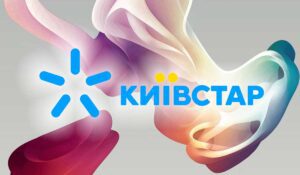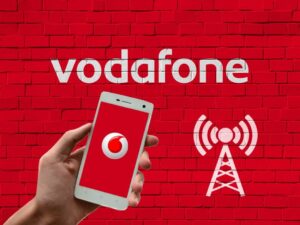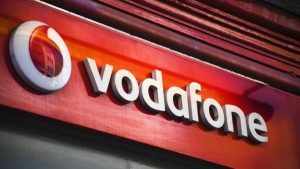
The mobile network operator lifecell has begun cooperating with the European cryptocurrency exchange WhiteBIT.”We started working with blockchain technologies. Hopefully, soon we will announce how we can use blockchain for our operations, how our subscribers can use these technologies. We are talking about registration, we are talking about privacy. We want to use blockchain technology to register our users,” lifecell CEO Ismet Yazici said in an interview with Interfax-Ukraine.According to him, with blockchain technologies users will be able to stay anonymous. At the same time they will be able to prove that they are the owners of a SIM card.”We would also like to expand the use of blockchain technologies for other areas of business. And we will be happy to cooperate in this direction with government agencies to help them take a step forward in the digital transformation process,” the CEO of lifecell said.Yazici called blockchain a very promising technology that, among others, can change the world. Therefore, lifecell intends to use this technology in as many of its services as possible.”Ukraine easily tries new things and quickly adapts to new technologies. It is enough to look at cryptocurrency or blockchain technology. Daily transaction volumes are very high,” the lifecell CEO said.The mobile network operator lifecell is the third largest operator in Ukraine. Turkcell (Turkey) owns 100% of the shares of lifecell LLC.

The mobile network operator Kyivstar in January-March 2021 increased its total revenue by 15% compared to the same period in 2020, to UAH 6.842 billion, according to a financial report of the company’s shareholder, the international Veon group.
According to data published on the official website of Veon, in the first quarter, Kyivstar increased its EBITDA by 15.3% compared to the same period last year, to UAH 4.658 billion. EBITDA margin grew by 0.2 percentage points (pp), to 68.1%.
Total operating revenue from mobile services rose by 14.9%, to UAH 6.357 billion.
According to the operator’s own report, Kyivstar accelerated the construction of high-speed data transmission networks, which resulted in a 24.3% increase in the number of 4G subscribers.
In turn, the use of mobile Internet per subscriber grew by 27.5%.
“We expect Kyivstar to continue to deliver double-digit revenue growth in the remainder of 2021,” Veon said in the financial report.
Veon said that Kyivstar’s 4G coverage in Ukraine reached 87%, (an increase of 10 pp year-over-year), and the penetration of 4G mobile communications in the operator’s network reached 38% of the total base.
The average revenue per user (ARPU) of mobile communications increased to UAH 82, or by 16.1%, the minutes of use (MoU) – by 5.1%, to 633 minutes.
The number of Kyivstar mobile customers in January-March decreased 1.15%, to 25.7 million.
“Kyivstar’s total mobile customer base showed a year-over-year decline largely due to the decline of second SIM cards in the market and lower gross additions during lockdown when the strict measures in 2Q20 resulted in the partial closure of Kyivstar stores and lower customer mobility,” Veon said.
Total operating revenue from fixed-line communication grew by 17.2%, to 451 million, broadband ARPU rose by 5.4%, to UAH 85. The number of broadband customers increased 11.5%, to 1.15 million.
Capex excluding licenses and leases (operational capex) increased by 11.7% year-over-year.
Revenue in the B2B segment grew by 6% in the first quarter of 2021, reflecting Kyivstar’s promotion of new digital solutions for its business customers and rapid growth in Big Data.
Veon said that digital adoption and usage have accelerated in the last twelve months. In Q1 2021, the number of MyKyivstar self-care users was at 2.7 million, up 76% year-over-year, while the Kyivstar TV service users increased to 414,342.
Kyivstar paid UAH 2.3 billion of taxes and duties to the national budget.
Kyivstar is a market-leading telecoms operator in Ukraine. It provides communication and data services based on a wide range of mobile and fixed-line technologies, including 3G.
The shareholder of Kyivstar is the international group VEON (earlier – VimpelCom Ltd.). The group’s shares are listed on the NASDAQ stock exchange (New York).

Vodafone Ukraine (PrJSC VF Ukraine) at the end of 2020 cut its net profit by 52.4% compared to 2019, to UAH 1.2 billion.
Vodafone Ukraine CEO Olha Ustynova said that the drop in net profit was due to the exchange rate difference.
“The only and main factor why this happened is the exchange rate difference on our loan. The U.S. dollar exchange rate has changed, the $500 million loan, which is more than [UAH] 1 billion of loss as a result to our net profit,” she said during the presentation last year’s results on Tuesday.
According to her, the company’s revenue last year increased 14% and amounted to UAH 18 billion, and the OIBDA (operating income before depreciation of fixed assets and intangible assets) grew by 18% year-over-year, reaching UAH 9.8 billion.
The number of Vodafone Ukraine customers in the country at the end of the year amounted to 19 million. The operator’s 4G network covers 81% of the country’s territory, which is 12% higher than the previous indicator for 2019.
At the end of 2020, the number of Vodafone Ukraine data users was 12.2 million, and the number of 4G users was 7.3 million.
Over the past year, the use of data traffic grew by 26%.
Vodafone Ukraine is the second largest mobile network operator in Ukraine.

The mobile network operator Vodafone Ukraine estimates investments in the 4G project in the 900 MHz (LTE 900) band at UAH 4 billion.
“If we talk about investments in general, according to our estimates, only the LTE 900 technology project will take about UAH 4 billion. This is a lot of money. At the same time, we are increasing the network capacity in large cities. We are investing in transport. And this is only the LTE 900 figures,” CEO of Vodafone Ukraine Olha Ustinova said at a briefing on Tuesday.
4G MOBILE, MOBILE, MOBILE NETWORK, MOBILE OPERATOR, VODAFONE

Mobile network operators Kyivstar, Vodafone Ukraine and lifecell plan to build up to 30% of new telecom network sites based on the infrastructure sharing model.
“We have agreed on sharing… All operators are aware that it makes no sense to build three networks in some localities and on some roads, that it makes sense to agree to a reasonable story with investments, it makes sense to share networks. According to forecasts, 30% of the new construction will be the sharing network,” Vodafone Ukraine CEO Olha Ustinova said at a briefing in Kyiv on Tuesday.
She also said that operators have great anticipations about the state’s permission to launch spectral sharing, which will allow them to share not only passive infrastructure, but also its active part.
Ustinova also called the elimination of the digital divide one of the most important projects of the telecom industry in Ukraine.
KYIVSTAR, LIFECELL, MOBILE NETWORK, MOBILE OPERATORS, network, VODAFONE